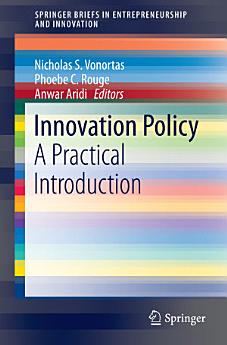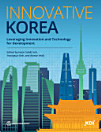Innovation Policy: A Practical Introduction
Acerca de este libro electrónico
Featuring contributions from leading scholars and policy experts, this volume references critical readings presents a wide array of data, on the following topics:
- Fundamentals of Innovation Policy for Growth and Development
- University Entrepreneurship
- Strategic Alliances / Knowledge-Intensive Partnerships
- Clusters / Science Parks / Knowledge Business Incubators
- High Risk Finance
- Intellectual Property, Standards
Calificaciones y opiniones
Acerca del autor
Nicholas Vonortas is Professor of Economics and International Affairs at the George Washington University in Washington D.C. He is a faculty member of the Department of Economics and of the Center for International Science and Technology Policy (CISTP). Professor Vonortas’ teaching and research interests are in industrial organization, in the economics of technological change, and in science, technology and innovation policy. He specializes on strategic partnerships / innovation networks, theory of investment under uncertainty, technology transfer, knowledge-intensive entrepreneurship / high-risk financing, and the appraisal of the economic returns of R&D programs. Professor Vonortas is an editor of the peer-reviewed journal Science and Public Policy. He holds a Ph.D. and a M.Phil. in Economics from New York University (USA), a MA in Economic Development from Leicester University (UK), and a BA in Economics from the University of Athens (Greece).
Phoebe C. Rouge is currently a Data Analyst at the US Federal Trade Commission in Washington, DC and worked previously while a student with the Center for International Science and Technology Policy (CISTP) at George Washington University. Her interests are in the social and economic aspects of technological change, and in science, technology, and innovation policy. Phoebe holds an MA in International Science and Technology Policy, specializing in economics of technological change, from the Elliott School at the George Washington University and an AB in History and Science, specializing in physics and 20th century American technology, from Harvard University.
Anwar Aridi is an Economic and Technology Policy Analyst at SRI International, specializes in innovation policy and strategy, economic development, and technology entrepreneurship. Prior to joining SRI, Anwar was at the World Bank in the Middle East department working on strategy and innovation related projects.He previously worked in the education technology area in Jordan and Lebanon. Anwar is currently a Ph.D. candidate at the Trachtenberg School of Public Policy and Administration at the George Washington University specializing in science and technology policy. He holds a Master's degree in International Science and Technology Policy from the same university, a Master's degree in Information and Telecommunication Systems from Ohio State University, and a Bachelor’s degree in Computer Science from the Lebanese American University.





